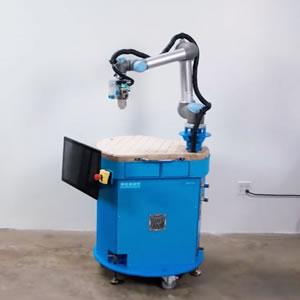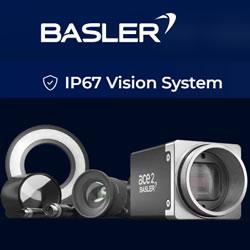This Company Has Created the Swiss Army Knife of Robots
 Leigh Buchanan Editor-at-large, Inc. magazine: Robots allow manufacturers to operate more cheaply. But robots themselves aren't cheap, limiting the ability of small manufacturers to compete with larger companies or win back business from overseas. A Baltimore startup thinks it has a solution: robots as a service.
Leigh Buchanan Editor-at-large, Inc. magazine: Robots allow manufacturers to operate more cheaply. But robots themselves aren't cheap, limiting the ability of small manufacturers to compete with larger companies or win back business from overseas. A Baltimore startup thinks it has a solution: robots as a service.
Industrial robots typically sell for $75,000 or more, a significant capital outlay. And that price tag escalates dramatically with operational costs. Ready Robotics, a startup housed in City Garage, a Baltimore center for makers, charges $1,500 to $4,000 a month for use of one of its robots, called the TaskMate. The TaskMate is easy to program and move around a factory floor. That suits it for the short production runs on which many small manufacturers survive.
Kelleher Guerin developed the underlying technology for TaskMate while working on his PhD and then as a post-doctoral fellow at Johns Hopkins University. He built a prototype and partnered with Benjamin Gibbs, a tech transfer official at the university. Their focus was on medical applications until they met Drew Greenblatt, owner of Baltimore-based Marlin Steel, a 30-employee maker of industrial baskets. Greenblatt invited them to tour Marlin's factory floor, where he explained the practical challenges faced by small manufacturers like himself. Soon after, Guerin and Gibbs pivoted toward industry. Full Article:
Featured Product

